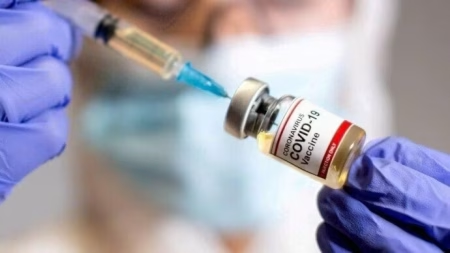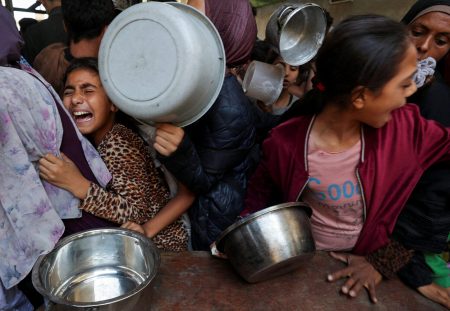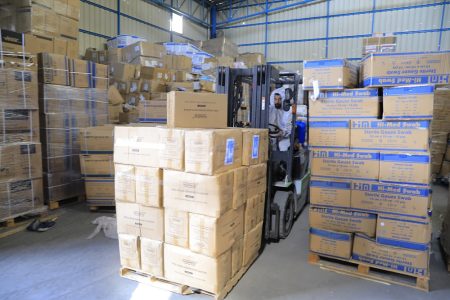In early April, Uganda launched its malaria vaccine program. The program aims to save lives across East Africa. However, vaccine hesitancy is growing despite support from global health organizations. Some people are spreading misinformation, claiming the malaria vaccines are part of a global agenda to sterilize women or reduce Africa’s population. These claims are hindering efforts to control malaria. Countries like Uganda and Kenya are working hard to fight the disease while battling growing distrust in vaccines.
The Fight Against Malaria in East Africa
Malaria remains a major problem in East Africa. In 2023, more than 600,000 people died from malaria worldwide. Most of the deaths were among children under five in sub-Saharan Africa. The World Health Organization (WHO) reports that nearly 95% of global malaria cases and deaths happen in Africa. Uganda and Ethiopia are among the hardest-hit countries. While some people are getting vaccinated, others are hesitant due to misinformation.
Caroline Akot, a mother from Northern Uganda, was initially doubtful about the malaria vaccine. She had heard rumors that the vaccines could sterilize women or control the population. Her child had tested positive for malaria, even with mosquito nets at home. This convinced her to have her child vaccinated. Despite her doubts, Akot believes the vaccine is necessary to prevent further infections and save lives.
Malaria Vaccines: Proven to Save Lives
Several malaria vaccines are now available in East Africa. The WHO-approved RTS,S (Mosquirix) and R21/Matrix-M vaccines are being rolled out. RTS,S is used in Kenya, Uganda, and Malawi. It has shown over 50% efficacy in preventing malaria in children. The newer R21 vaccine, approved in late 2023, offers up to 75% protection. It is now being widely distributed in Uganda and other high-risk areas.
These vaccines have been developed over decades with support from global health partners like GlaxoSmithKline (GSK) and the Bill & Melinda Gates Foundation. Since 2019, more than 2 million children in Ghana, Kenya, and Malawi have been vaccinated with RTS,S. The vaccine has reduced severe malaria cases by 22-30% and lowered child deaths by 13%. Experts believe millions of child deaths could be avoided by 2035 if vaccinations are expanded.
The Rise of Anti-Vaccine Sentiment in Africa
Anti-vaccine sentiment is growing in East Africa, especially in Uganda. Misinformation is spreading through social media and local WhatsApp groups. Some people claim that the malaria vaccine is part of a Western plot to reduce Africa’s population or sterilize women.
Joseph Kiiza Kabuleeta, a Ugandan politician, is one of the loudest critics. Kabuleeta, who ran for president in Uganda, compares himself to U.S. anti-vaccine activist Robert F. Kennedy Jr. He claims that the malaria vaccine has zero protection and causes illnesses such as meningitis and seizures. His accusations, made without evidence, are spreading through social media. This is further fueling vaccine skepticism.
Kabuleeta argues that the vaccines are part of a plan by “Westerners” to harm the poor in Africa. His claims have gained support, especially in rural areas. Religious figures, including Nigerian televangelist Pastor Chris Oyakhilome, have also spread similar anti-vaccine messages. These figures use their platforms to amplify distrust in vaccines.
The Battle Against Fear and Misinformation
Health workers in Uganda and other East African countries are working hard to counter vaccine misinformation. “We are not just fighting a parasite; we are fighting fear,” said one Ugandan nurse. The spread of false information is putting lives at risk and hindering progress in malaria control.
In May 2023, an anti-vaccine conference in Uganda brought together European conspiracy theorists and African activists. This event helped spread more misinformation. The anti-vaccine movement now connects with other conservative causes, such as opposition to LGBTQ rights and abortion. This has created a larger network of people opposed to Western influence.
Global and Local Efforts to Combat Malaria
The fight against malaria continues despite the challenges of vaccine hesitancy. East Africa remains a key focus in the global effort to eliminate malaria. Public health officials are optimistic that vaccines and other prevention measures will help control the disease. Although vaccines are not a complete solution, they represent an important tool in reducing malaria transmission.
Experts stress the need for public education campaigns to build trust in vaccines. Collaborating with local leaders, religious figures, and health professionals will help spread accurate information. This collaboration is crucial to ensuring that the benefits of vaccination reach as many people as possible.















